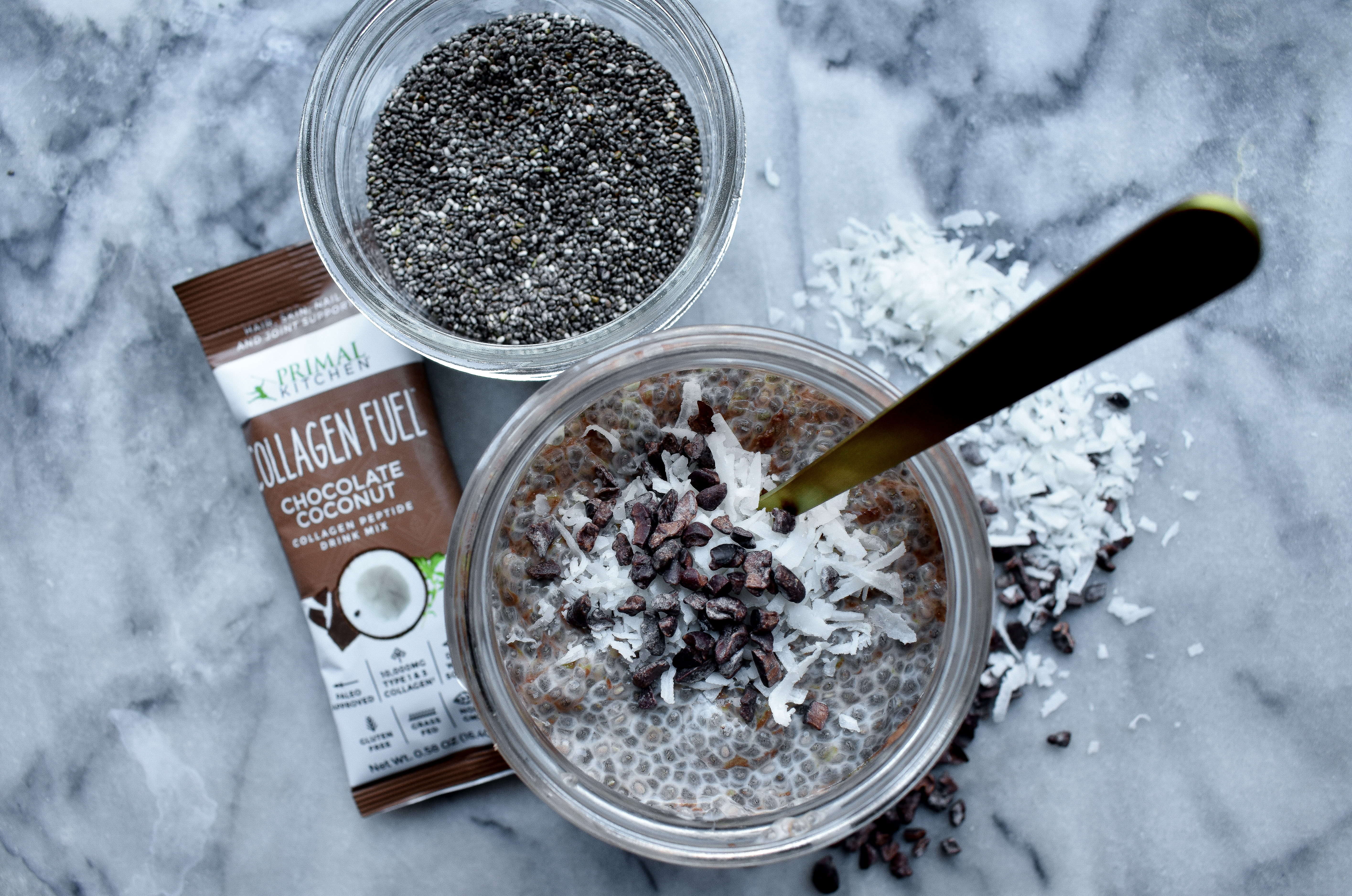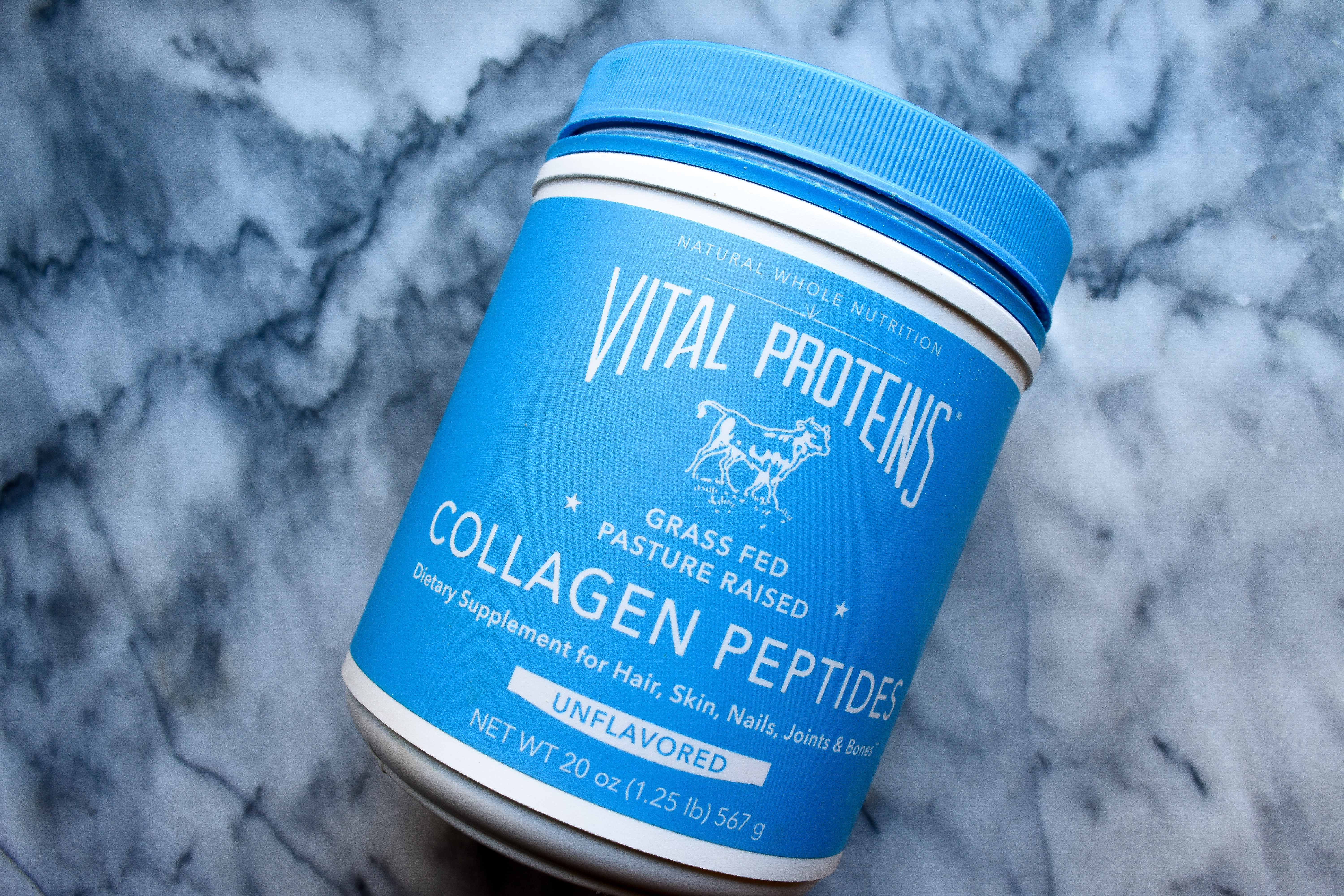All About Detoxing
 If you follow along on Instagram, you know I recently completed a 3-day cleanse with Live Beaming. The cleanse was a whole-food, vegan, gluten-free 3-day cleanse that included a mix of green juices, almond milks, protein drinks, electrolyte elixirs, salads and soups. It was the perfect little reset before the holidays and was totally doable since it included whole foods – not just juice (I’ll save why I’m anti-juice cleanse for another post ;p). While on the cleanse, I got thinking about the concept of ‘detoxing’ in general. Our bodies are working to cleanse and detox every day, and there are habits and routines we can incorporate to support these detoxification processes.
If you follow along on Instagram, you know I recently completed a 3-day cleanse with Live Beaming. The cleanse was a whole-food, vegan, gluten-free 3-day cleanse that included a mix of green juices, almond milks, protein drinks, electrolyte elixirs, salads and soups. It was the perfect little reset before the holidays and was totally doable since it included whole foods – not just juice (I’ll save why I’m anti-juice cleanse for another post ;p). While on the cleanse, I got thinking about the concept of ‘detoxing’ in general. Our bodies are working to cleanse and detox every day, and there are habits and routines we can incorporate to support these detoxification processes.
OVERVIEW – ORGANS OF DETOXIFICATION
Let’s start with a highly over-simplified explanation of your body’s detoxification systems.
When thinking about “detoxing” its important to remember that there’s no miracle detox foods (and DEFINITELY no miracle detox skinny teas) – it’s all about supporting your body’s natural detoxification systems. The six main organs of detoxification are the liver, kidneys, lungs, colon, lymph and skin.
LIVER
Your liver performs a wide variety of critically important roles in your body – it produces bile which is needed for digestion and absorption of fat and fat soluble vitamins, it helps metabolize carbohydrates in the form of glucose and fructose, it filters blood for hormones, metabolizes drugs and alcohol – and the list goes on. But the liver is probably most famous for its role in removing toxins from our body – it does this by converting fat-soluble toxins into water-soluble toxins so they can be execrated from the body via the kidneys (through urine) or through bile (via the colon), and it does this in two distinct phases. The process of the liver neutralizing these toxins results in the production of free radicals, so its crucial to have antioxidants in the liver to neutralize these free radicals to prevent additional damage in the body. Glutathione (a protein that plays the role of the body’s master antioxidant) is critical in this process. We don’t get glutathione directly from foods – our bodies make it from the amino acids cysteine, glutamate, and glycine (hello collagen). In general, the liver’s detoxification processes are highly nutrient-dependent.
KIDNEYS
The kidneys also perform a lot of important tasks in the body – the most notable being filtering the blood for toxins, and excreting waste via urine. The kidneys also help maintain the body’s fluid balance, pH balance, and excrete by-products of protein breakdown. If the kidneys are overtaxed, the body can’t effectively excrete waste via the urine.
COLON
The most obvious way our bodies “eliminate”. Hopefully it’s no surprise to you the importance of keeping things moving. When your liver releases toxins in the form of bile, it’s excreted via the colon. The colon (large intestine) also eliminates physical waste from what we eat.
LUNGS
The lungs mainly eliminate carbon dioxide, but also support removal of toxins in the form of phlegm (lovely scientific term huh?).
SKIN
Our skin is the largest organ in our body, and is highly absorbent of what we put on it, so we want to avoid putting toxins on our skin in the first place. We can also release some toxins through our sweat glands (though in very small amounts).
LYMPH
The body has two major circulatory systems – the blood and lymph. The lymphatic system transports lymph fluid around the body, which includes lymphocytes (white blood cells) which help fight infection. You know how doctors check your lymph nodes for swelling when you’re sick? This is the lymphatic system in action. Unlike the blood which is moved throughout the body via a pump (the heart), movement of the lymph requires active movement on our part, such as breathing, physical movement and exercise, and certain types of massage. The lymphatic system is not a closed system (like circulating blood), and eventually drains into lymphatic ducts.

MY TOP DETOXIFICATION FOODS & PRACTICES
FIRST, AVOID THE BAD STUFF.
This should probably be obvious, but the best way to help your body detox is to keep the bad stuff out in the first place. I focus on keeping my diet 80% anti-inflammatory (no gluten or dairy, and rarely grains, soy, sugar, processed carbs, vegetable oils) – but hey, the bad stuff (I’m looking at you, tequila) is fun, and a part of life, so we just do what we can to offset it.
SUPPLEMENTS*.
I take NAC (N-acetyl cysteine) and Milk Thistle supplements everyday to support my liver (prescribed to me by a naturopath).
- NAC is a precursor to glutathione production (remember that super important antioxidant we talked about that our liver needs to do its job).
- Milk Thistle has long been used as an herbal remedy, and has antioxidant properties that are supportive of the liver.
- I also take a methylated B-Vitamin everyday. B Vitamins serve as cofactors for a wide range of chemical processes in the body, and are important for Phase 1 of liver detoxification.
FOOD.
Keeping my diet as anti-inflammatory and nutrient-dense as possible is key for everyday detox.
- In general, antioxidants are crucial for ensuring your liver has what it needs to process toxins, and your body can combat the by-products of this process (free radicals). High-antioxidant foods that are a regular part of my diet are dark leafy greens, cruciferous veggies, wild berries, coffee, matcha, dark chocolate, wild caught salmon, pasture-raised eggs (the yolks!) and spices like cinnamon, turmeric and ginger.
- Sulforaphane is a compound (found in high amounts in broccoli sprouts and cruciferous vegetables) that has been the hot topic of resent studies by Dr. Rhoda Patrick and has been shown to support liver health, among other neuroprotective benefits.
- Fiber is also a super important component for supporting your body’s ability to eliminate toxins through your colon. The recommended daily fiber allowance for women is 25g and 38g for men – and most people do not get enough! My chia seed protein pudding (which I bring to work for breakfast most days) has 11g of fiber from the chia seeds to make sure I’m getting enough fiber everyday.
- I also incorporate Dandelion Root tea from time to time which not only helps flush water weight as a diuretic, but it stimulates the liver to produce bile, which aids in the removal of toxins.
- Water! Good old warm water with lemon every morning. Supports the kidneys, digestive system, lymph and skin.
INTERMITTENT FASTING*
Periods of fasting allow our bodies to stop focusing on digesting food, and focus on the clean up activities. There’s some seriously exciting and incredible research about fasting and its effects on longevity (like the fact that entire organs, including the liver, can shrink in size!). Definitely check out Dr. Valter Longo’s work if you want to learn more about the latest fasting literature, and check out this post for how I intermittent fast.
MOVING.
To get the lymph system moving, I’m always aiming to move my body in some way every single day – even if it’s just yoga and stretching at home or going on a walk. Intense sweaty sessions from workouts or infrared saunas are also great for getting impurities and toxins flowing out of the body. I also incorporate dry brushing most mornings which stimulates lymphatic drainage and exfoliates the skin. *As always, talk to your doctor before introducing any new supplements, fasting or exercise routines.






